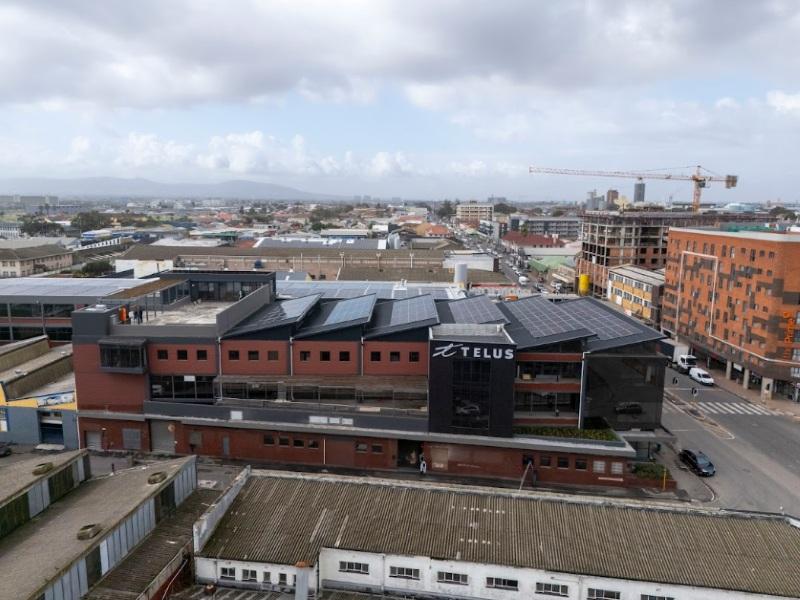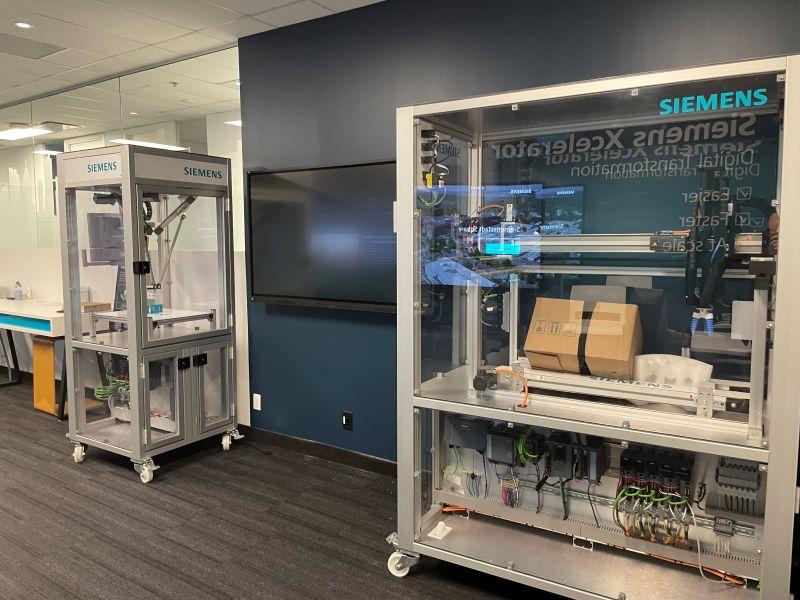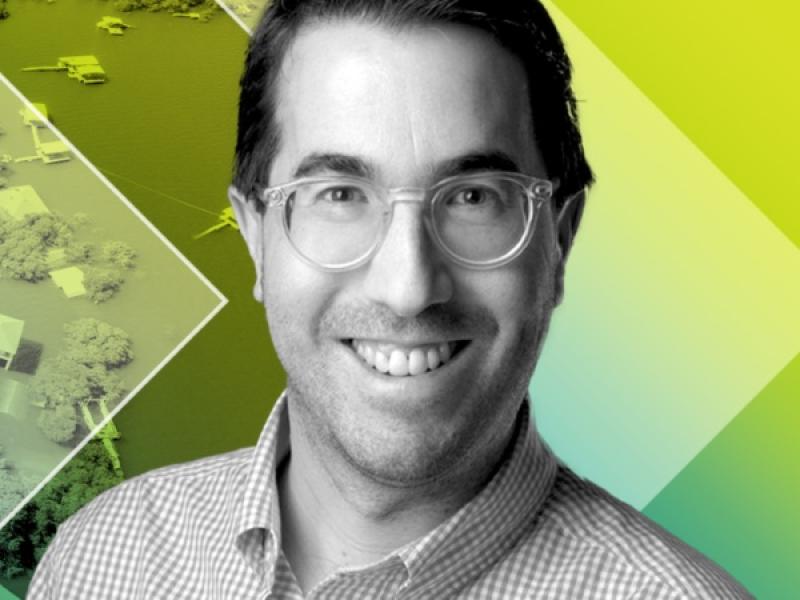
Michael J. Cooper is the president and chief responsible officer of Dream, as well as chair and CEO of Dream Office REIT. (Courtesy Dream)
The Dream group of companies has set out to achieve net-zero greenhouse gas (GHG) emissions by 2035, or sooner, for all its operations and new developments.
In addition to being good for the environment, Dream’s investors and tenants, chief responsible officer Michael Cooper believes the initiative can provide his firm a “competitive advantage.”
The group includes Dream Unlimited, Dream Office REIT, Dream Impact Trust and Dream Industrial REIT.
As part of the initiative, the Canada Infrastructure Bank (CIB) is committing up to $136.6 million to Dream to finance 19 retrofits in Ontario and Saskatchewan in buildings built from 1875 to 1992. It is the first loan under the CIB’s Commercial Building Retrofits Initiative.
Creating approximately 1,500 jobs during the life of the program, Dream will begin decarbonizing and modernizing each building starting in spring 2022.
Dream’s impact investing
Cooper said the company is focusing on impact investing.
“We’ve invested in three areas,” he told SustainableBiz during an interview. “The first one is resource management, which includes carbon emissions but also includes how we deal with water to use less water. That’s all resources. We also focus on affordable housing and we focus on inclusive communities.”
In addition to the obvious benefits of reducing carbon emissions on the environmental side – “we want to be a good corporate citizen” – Cooper said there are solid financial reasons for making these investments.
“We’re also focused on the financial implications. We’re going to do a lot in our buildings. We did the very first loan with the Canada Infrastructure Bank to help us finance it,” he explained. “We think our tenants will like our buildings more. They may like our buildings more than some of our peers, we’ll be more leased and the savings on energy will be meaningful.
“So we think it will work out both socially and financially very well for our tenants and for us.”
These projects are primarily office buildings but do include a few apartment buildings. The retrofits include $70 million to be spent on new heating and cooling equipment which not only reduces energy usage, but will make the buildings healthier.
“To do $140 million in retrofits in 19 buildings is going to take a lot of people working on it. They’re complicated jobs and we’re trying to get it all done simultaneously, it’s a big undertaking,” Cooper observed. “So we don’t really have the ability to do another 19 right now, but I do think as we work our way through this we’ll learn a lot and then be able to do more in buildings we own – and look at what we can do to reposition other buildings that we don’t own yet, that we can buy.
“It’s a competitive advantage. It’s important on how we manage for the future.”
An extended program could have significant impact. Dream Unlimited has $13 billion of assets under management.
Dream’s future plans
Additionally, efforts are already underway at Dream Unlimited’s 34-acre master-planned development Zibi in Ottawa and Gatineau. The huge development along the Ottawa River is set to become the National Capital Region’s first net-zero community by 2025.
Bringing this ambition to reality, Dream Unlimited recently brought online the region’s first zero-carbon district energy system, relying on post-industrial waste energy for heating and the Ottawa River for cooling. The system is designed to provide zero-carbon heating and cooling to all residents and tenants in the community.
Cooper said he sees more net-zero communities in Dream’s future.
“I think we have more visibility in how to create communities that are net-zero. It does cost more in most cases, so we’ve got to make sure it makes sense financially, but the social benefits are very powerful,” Cooper said. “The federal government has come out and said they don’t want to go into these buildings (as a tenant) if they’re not net-zero. They’re only going into buildings that are net-zero.”
Dream’s sustainability report
Recently, Dream released its 2020-2021 Sustainability Report, titled Bold ideas for better communities. Cooper said the company’s mission is to create positive environmental and social results, alongside strong financial returns.
“In addition to being the right thing, sustainability is a part of our day-to-day business and we actively work to improve the places where we invest, develop and operate with the goal of leaving them better than we found them,” Cooper said in the report. “Our successes can be seen in the revitalization of our communities such as Toronto’s Distillery District, Zibi, West Don Lands and Brightwater.
“We have pursued social and environmental results with our tenants by offering green leases, creating walkable communities with parks and green spaces, and operating energy- and water-efficient buildings.”
Highlights of the report include:
● The adoption of a new ESG framework with collective and entity-specific targets for embedding sustainability across the organizations;
● The Dream group of companies significantly increasing its ESG data disclosures and showing sustainability results;
● Dream Unlimited is a two-time honouree of the Globe and Mail Report on Business “Women Lead Here” program that benchmarks gender parity (2020 and 2021);
● Dream being certified as a Great Place to Work, reflecting its commitment to a positive work culture for all employees;
● Dream Office and Dream Impact participated in the Global Real Estate Sustainability Benchmark (GRESB) for the first time and achieved scores of 91 and 90, respectively – two of the highest first-year scores in the global benchmark;
● Dream Industrial releases a Green Financing Framework in support of its green financing initiatives;
● New net-zero greenhouse gas (GHG) emissions goals: Dream Unlimited, Dream Impact and Dream Office are committing to net-zero Scope 1 and 2 and select Scope 3 GHG emissions (operational and development) by 2035, and Dream Industrial is committing to net-zero Scope 1 and 2 GHG emissions (operational) by 2035 and net-zero select Scope 3 GHG emissions (operational and development) by 2050;
● Dream Unlimited, on behalf of the Dream group of companies, joined the Net Zero Asset Managers Initiative, which represents asset managers around the world aligned with net-zero GHG emissions targets of no later than 2050;
● Dream Unlimited, on behalf of the Dream group of companies, has signed onto the United Nations’ Principles for Responsible Investment – an international network of investors working to implement six key principles to ensure a sustainable global financial system; and
● The Dream group of companies becoming official supporters of the Task Force on Climate-Related Financial Disclosures.
Heading into 2022
“In 2022, we’re actually going to unveil our road map to net-zero and specific(s) so people can see what we’re doing and judge our progress,” said Cooper.
He said the past couple of years, as the company has transformed amid a global pandemic, has led to a new outlook at Dream: “I don’t know if there’s anything that we do now, that’s the same that it was two years ago.
“In some ways, COVID has forced us to do certain things like work remotely. But, in other ways we had the opportunity to think about what we’re doing and, quite honestly, think about a lot of the inequities in our communities, think about how to use real estate to address some of those inequities and work with the government to help them achieve their goals – social and environment.”
“So our business is very, very different than it was two years ago and I think it’s a much better business.”
Dream has also introduced private funds to raise money to invest in real estate.
“That’s starting to get some traction and that’s a big project. One of those funds is an impact fund which focuses on the dual bottom line. So we’re trying to do social benefits plus the financial benefits. We started Impact Fund and Impact Trust. But I’d say it’s spreading into everything we do,” he said.
“We believe that real estate can be developed and managed to make positive impacts and make our communities more fair. Real estate is responsible for about 40 per cent of global greenhouse gas emissions. That’s the impetus of (its net-zero commitment) – we believe that we can stop the growth of carbon emissions from our properties and reduce our emissions dramatically. It has never been more urgent to act swiftly.”
About Dream
Dream develops office and residential assets in Toronto and owns stabilized income generating assets in Canada and the U.S. It also develops land and residential assets in Western Canada.
Dream Office REIT is an unincorporated, open-ended real estate investment trust. It owns and manages about 3.5 million square feet of office space in downtown Toronto.
Dream Impact Trust is an open-ended trust dedicated to impact investing.
Dream Industrial REIT is an unincorporated, open-ended real estate investment trust. As at September 30, 2021, it held a portfolio of 221 industrial assets (326 buildings) comprising 39.8 million square feet of GLA in Canada, Europe and the U.S.








